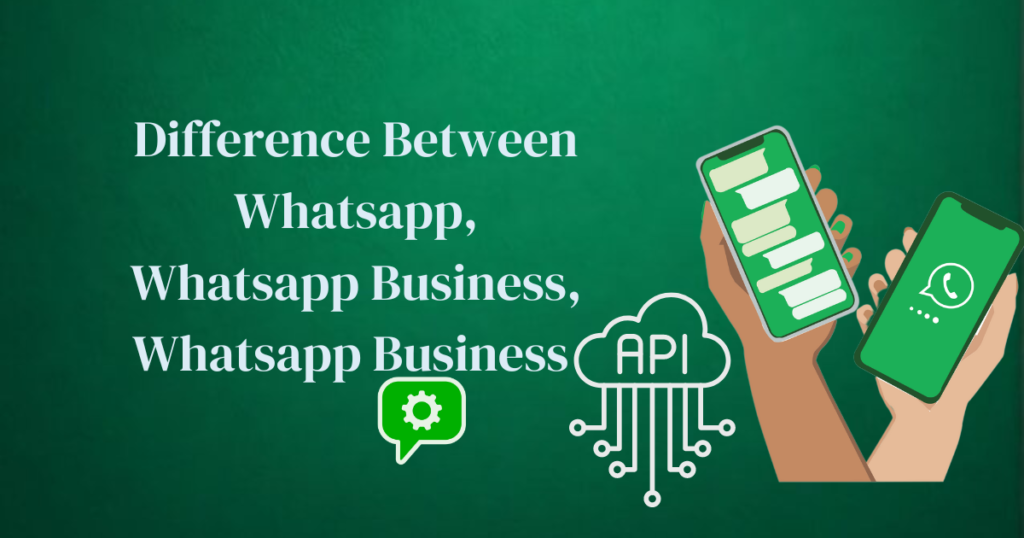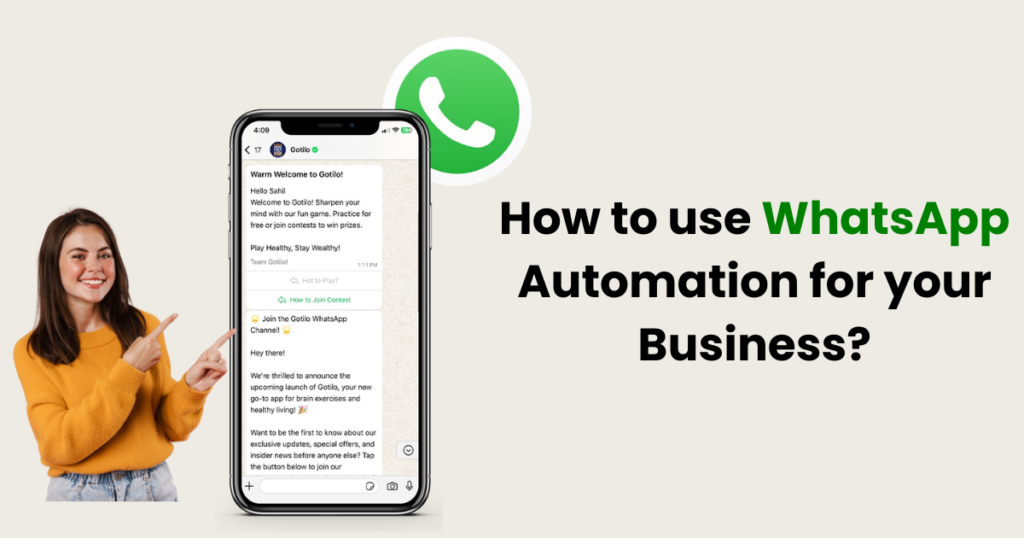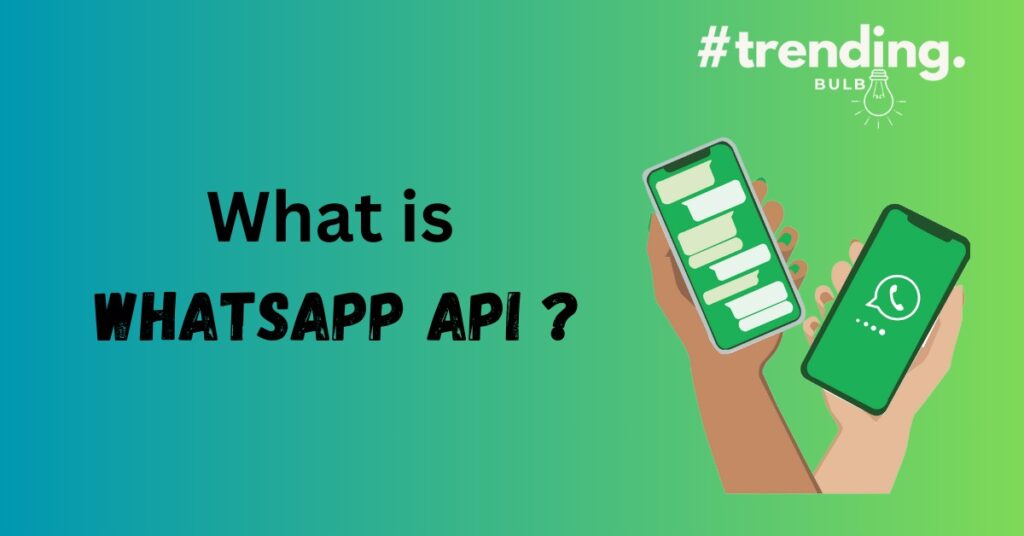
In today’s fast-paced digital world, effective communication is key for personal and business interactions. WhatsApp stands out as a popular messaging platform, but it’s crucial to know the differences between WhatsApp, WhatsApp Marketing, and the WhatsApp Business API to use each tool effectively. This guide will help you understand these three facets and choose the right approach for your needs.
1. WhatsApp: The Messaging App
What is WhatsApp?
Launched in 2009 and acquired by Facebook in 2014, WhatsApp has become a global staple for personal communication. It allows users to send texts, make voice and video calls, and share media seamlessly.
Features of WhatsApp:
- Personal Messaging: Exchange text messages, voice recordings, and video calls effortlessly.
- Group Chats: Create and manage groups to stay connected with family, friends, or colleagues.
- Media Sharing: Easily send and receive photos, videos, and documents.
- Status Updates: Share temporary updates with your contacts to keep them in the loop.
User Experience:
WhatsApp offers a user-friendly interface and ensures privacy with end-to-end encryption, meaning only you and your chat partner can read your messages.
2. WhatsApp Marketing
What is WhatsApp Marketing?
WhatsApp Marketing leverages the platform for promotional and customer engagement purposes. Unlike personal messaging, it focuses on reaching out to customers with targeted content.
Strategies for WhatsApp Marketing:
- Customer Engagement: Use direct messaging to address customer queries and concerns.
- Promotional Content: Send special offers, updates, and news directly to your audience.
- Building Relationships: Develop deeper connections through personalized messages and customer support.
Tools and Techniques:
- Feedback and Support: Collect feedback and provide support via personalized messages.
- Best Practices: Craft engaging messages to maintain interest and avoid being perceived as spam.
Benefits of WhatsApp Marketing:
- Direct Communication: Engage with customers where they are already active, enhancing engagement rates.
- Personalization: Tailor messages to individual preferences, improving the customer experience.
3. WhatsApp Business API
What is the WhatsApp Business API?
The WhatsApp Business API is tailored for larger businesses with complex communication needs. It provides advanced features for automation, integration, and large-scale messaging.
Features of WhatsApp Business API:
- Automated Responses: Set up workflows to handle common queries efficiently.
- CRM Integration: Connect the API with your CRM system for seamless customer management.
- Messaging Templates: Use pre-approved templates for sending notifications and updates.
Use Cases for WhatsApp Business API:
- Customer Support: Provide 24/7 support with automated responses for common issues.
- Transactional Notifications: Send order confirmations, booking updates, and other critical information.
- Marketing Campaigns: Run sophisticated marketing strategies with targeted messaging and segmentation.
Benefits of WhatsApp Business API:
- Scalability: Handle large volumes of messages and interactions effortlessly.
- Advanced Analytics: Access detailed reports and insights to gauge campaign effectiveness.
- Integration: Combine with other business tools for a seamless customer experience.
4. Comparing WhatsApp, WhatsApp Marketing, and WhatsApp Business API
Usage Scenarios:
- WhatsApp: Best for personal communication and casual interactions.
- WhatsApp Marketing: Ideal for small to medium-sized businesses looking to engage directly with customers.
- WhatsApp Business API: Suited for large enterprises needing advanced features, scalability, and integration.
Features and Capabilities:
- WhatsApp: Basic messaging and media sharing.
- WhatsApp Marketing: Direct customer engagement and promotional content.
- WhatsApp Business API: Automation, CRM integration, and large-scale messaging.
Costs:
- WhatsApp: Free for personal use.
- WhatsApp Marketing: Generally affordable, with costs varying based on approach.
- WhatsApp Business API: Involves setup and ongoing fees based on usage and service providers.
5. Choosing the Right Tool
For Personal Use:
The standard WhatsApp app is perfect for personal communication with its straightforward features.
For Small to Medium Businesses:
WhatsApp Marketing is great for businesses looking to connect with customers through personalized messages and promotions.
For Large Enterprises:
The WhatsApp Business API is ideal for companies needing advanced features, scalability, and integration with other business systems.
Conclusion
Understanding the distinctions between WhatsApp, WhatsApp Marketing, and the WhatsApp Business API is crucial for optimizing your communication strategy. Whether you’re using it for personal chats, marketing, or large-scale business operations, choosing the right tool can enhance your engagement and efficiency.
Feel free to share your thoughts or experiences with WhatsApp, WhatsApp Marketing, or the WhatsApp Business API in the comments below! Let’s keep the conversation going!

